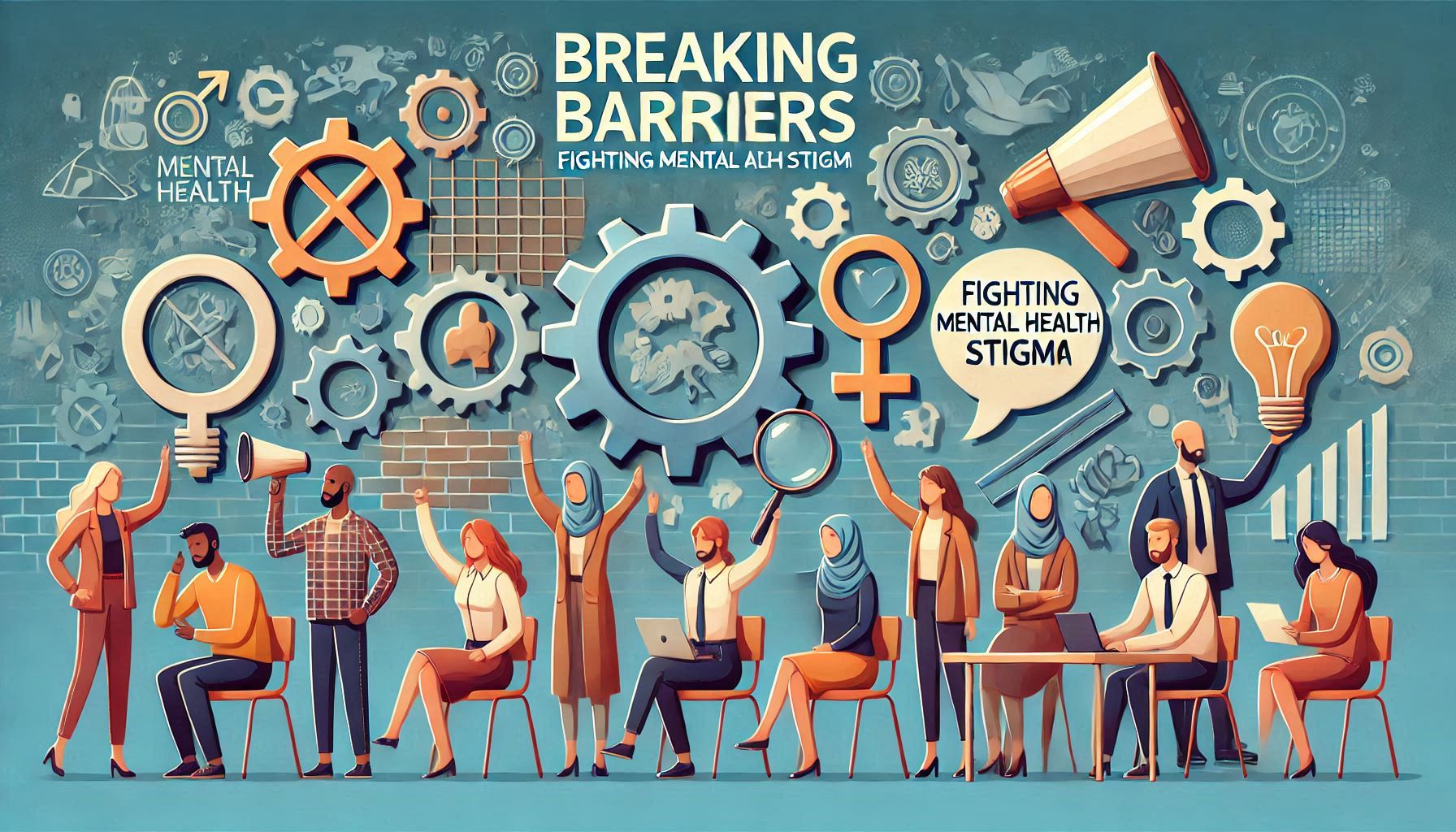-

Nature vs. Nurture: What Drives Gendered Mental Health Outcomes?
Mental health has long intrigued scientists, particularly in understanding how gender differences shape mental health outcomes. A central question in this exploration is whether nature (biological and genetic factors) or nurture (environmental and social influences) plays a more significant role. This enduring debate in psychology, psychiatry, and neuroscience seeks to untangle the complex interplay between…
-

Breaking Barriers: Fighting Mental Health Stigma for All Genders
Mental health issues transcend boundaries such as gender, race, age, and socio-economic status. Yet, gender plays a significant role in how mental health is perceived, diagnosed, treated, and understood across different cultures and societies. Despite the growing awareness of mental health, gender-specific stigma continues to serve as a barrier to accessing care, discussing mental well-being…
-

Women and Depression: Unveiling Unique Risk Factors
Depression is a complex condition that affects millions globally, with women experiencing it at higher rates than men. The higher prevalence of depression in women is shaped by a unique blend of biological, psychological, social, and environmental factors. These factors, including hormonal fluctuations, neurobiological differences, and societal influences, contribute to how depression manifests in women,…
-

Men’s Mental Health: Behind the Mask of Masculinity
The conversation surrounding mental health has evolved significantly in recent years. The stigma associated with mental health struggles has gradually decreased, and awareness has grown regarding the importance of mental well-being for people of all genders. However, despite these advancements, men’s mental health remains an area of significant concern, one that is often overshadowed by…
-

LGBTQ+ Communities & Violence – Mental Health Consequences of Gender Based Violence: Overview
Gender-based violence (GBV) is a pervasive issue that affects individuals across various social groups, but LGBTQ+ (lesbian, gay, bisexual, transgender, queer, and other gender minorities) communities experience unique and compounded forms of violence that have profound implications for mental health. GBV refers to violence that is perpetrated based on gender, and it can manifest in…
-

Focusing on the Unique Challenges Faced by LGBTQ+ Individuals Experiencing Gender-Based Violence and its Psychological Effects
Gender-based violence (GBV) is a term used to describe violence directed at an individual based on their gender. While gender-based violence affects individuals across all societal groups, the LGBTQ+ community—comprising lesbian, gay, bisexual, transgender, queer, and other gender-diverse individuals—faces specific challenges that exacerbate the psychological and emotional toll of GBV. These challenges are rooted in…
-

The Intersection of Gender and Poverty: Mental Health Struggles of Marginalized Groups
Gender inequality and poverty are two significant global issues that intersect in ways that severely affect the mental health of marginalized groups. Women, transgender, and non-binary individuals living in poverty face overlapping challenges of economic insecurity, social discrimination, and systemic barriers to healthcare and support services. This intersection often leads to compounded mental health struggles,…
-

The Impact of Systemic Oppression on the Mental Health of Marginalized Communities: A Comprehensive Exploration of Racial, Economic, and Social Disparities
Mental health struggles among marginalized groups represent a significant area of concern that demands increased attention and action. These struggles are deeply intertwined with social, economic, and political factors, and they are often compounded by systems of oppression that further limit access to resources and opportunities for well-being. In this essay, we will explore the…

Monday – Saturday 9AM – 5PM
Sunday – CLOSED





